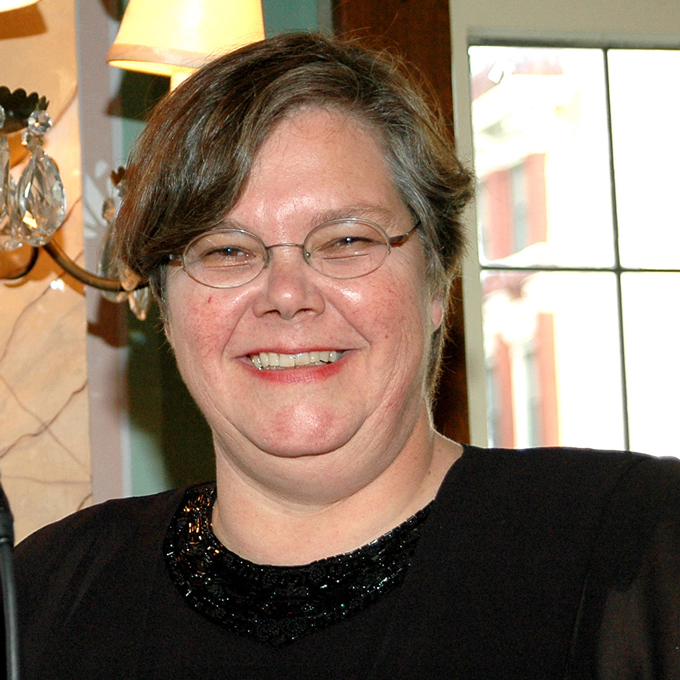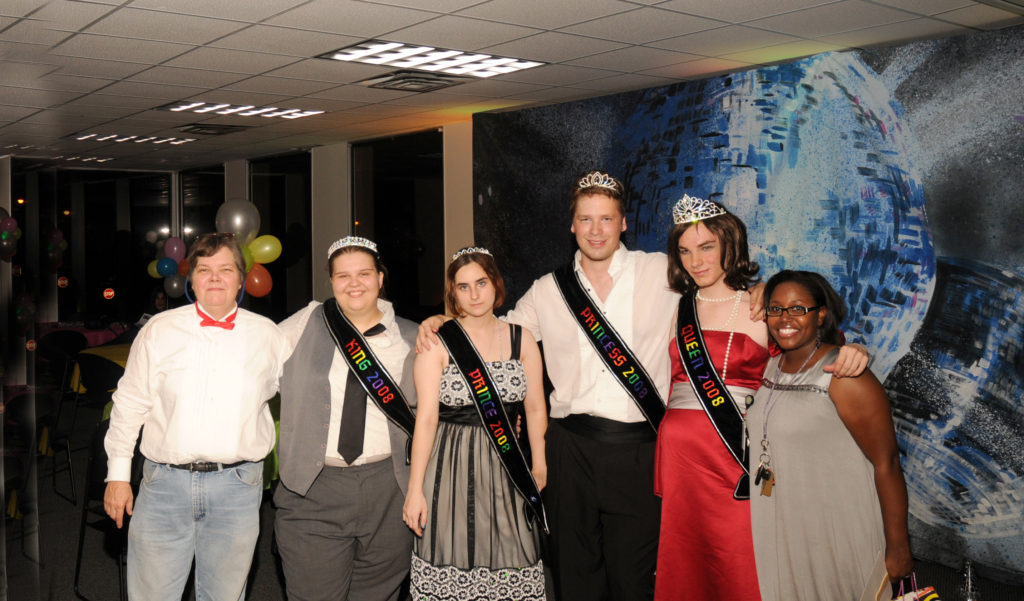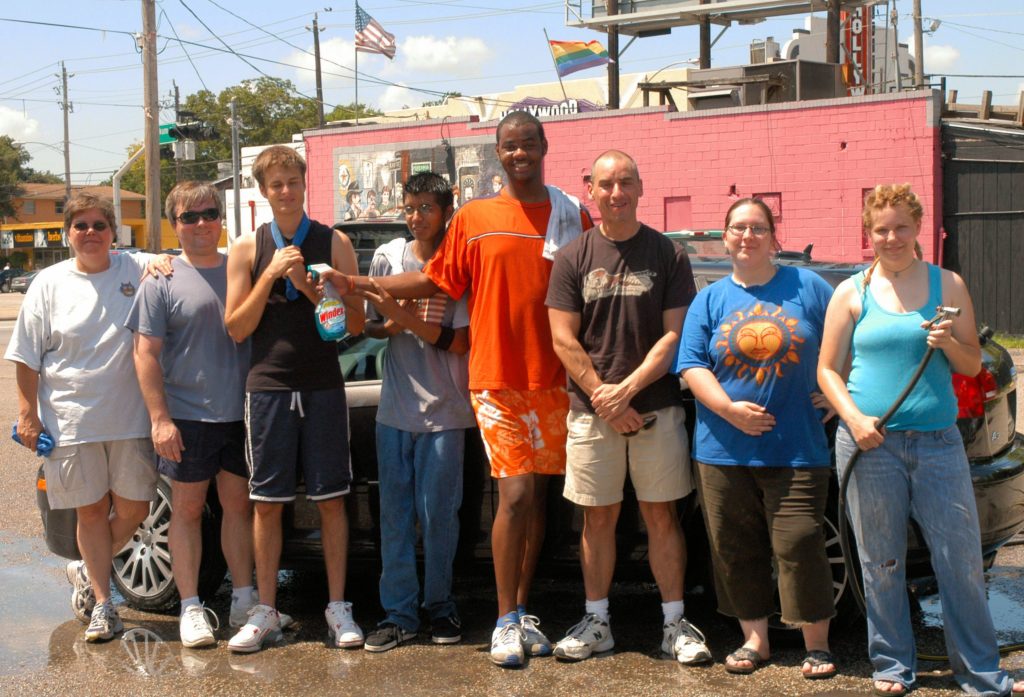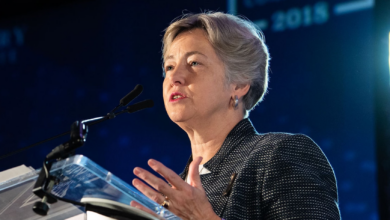
The Montrose Center’s Deb Murphy Retires After 18 Years
The former services specialist empowered generations of LGBTQ youth.

After eighteen years with the Montrose Center’s Hatch program for LGBTQ youth, services specialist Deb Murphy retired on July 17. During her years with the program, she impacted the lives of thousands of “Hatchlings.”
“I like the words of Frederick Douglass: ‘It is easier to build strong children than to repair broken men,’” Murphy says.
The Montrose Center has announced that the Hatch meeting room will be permanently named after Murphy. A small, socially distanced ceremony will be held this fall to honor her.
“Deb Murphy’s name is synonymous with Hatch, and she has shaped the way the community sees LGBTQ+ youth in Houston,” Ann Robison, executive director of the Montrose Center, notes. “She leaves a legacy of excellent programming and examples of how to empower youth to fulfill their potential.”
Kennedy Loftin, the Center’s chief development officer, adds: “No other community member has positively impacted as many LGBTQ youth as Deb Murphy. Hatch Youth Services impacted 2,340 youth in 2019 alone. Hatch remains one of the most successful partnerships in the Center’s history.”
A Few of the Success Stories
Former Hatchling Brian Carlson says he was very shy when he first came to Hatch at age fourteen, but he soon met another teen who became his best friend—and the young man that he would one day marry.
Now a 36-year-old computer programmer, Carlson thanks Murphy for teaching relationship negotiating skills, and for inviting LGBTQ elders like the late pioneering activist Ray Hill to speak at Hatch meetings. “Deb is very caring, enormously patient, and was a mentor to me,” he says.
Karen and Bunny Carlson, Brian’s parents, are appreciative of all Murphy has done for their son. “Hatch was a safe place for him to be with other kids like himself. Deb was the guiding light for that organization. She gave them solid tools for surviving in the larger world. She walks on water.”

Jeffry Faircloth, another 36-year-old former Hatchling, grew up in a home with strong Pentecostal (and anti-gay) values. At 17, he felt so trapped in his situation that he dialed the number for the Hatch switchboard from a pay phone. “Based on the teachings I had learned, I felt I was about to doom my soul for eternity,” he recalls.
Faircloth says his first Hatch meeting was “like the Twilight Zone.” Prior to attending, he had never seen a gay teenage couple holding hands. The small-group sharing time at the end of each meeting was a lifesaver, he adds, noting that he was finally able to speak about all the conflicting feelings that raced around inside his head and heart.
When Faircloth joined Hatch, gay marriage had not been legalized anywhere in the country. And in Texas and many other states, gay sex was still considered a crime. “We didn’t have many positive depictions of us in the media back then, but Deb put a new face on what being gay was like. She was an open, successful person.”
Faircloth says Murphy told him he would do great and wonderful things. “She really believed in us,” he says, noting that he went on to become a co-president of PFLAG Houston, and one day plans to seek ordination in the Episcopal church. “I want to fight religious people on their own turf.”
Crimson Jordan, 24, was a sixteen-year-old preacher’s kid when he first met Murphy in 2012. At the time, Jordan was the president of the Gay/Straight Alliance at his school, and often suggested Hatch to other students he talked with. He had never attended the group until he was forced to leave his home and a friend took him to a Hatch meeting. During that first session, Murphy realized Jordan was traumatized and asked to talk with him in a separate room. “This is a woman I had never met before, who offered her support at my time of need. She was the calm and peace in my life.”
Jordan began couch-surfing at various friends’ apartments and attending Hatch meetings regularly. Murphy encouraged him to stay in school and to find a safe place. He would often come to the Montrose Center directly from school for Hatch meetings, and Murphy would let him use the Hatch room to do homework before the meetings began.

“Deb has a good listening ear, and she will point you in a good direction. She will not let you give up on yourself. After each Hatch meeting, she would not go home until she knew I had a place to sleep that night,” Jordan recalls. “She is family for people who no longer have families.”
In his senior year, Jordan felt he would never be able to afford college. Murphy directed him to the HISD Homeless Education Office, which provided him with clothes, food stamps, bus passes, and government assistance. They also helped him apply for college.
Jordan graduated from the University of Houston in 2017, and now works as a high-school English teacher.
“The resilience and resolve I now have are due to her,” Jordan says. “And she’s done this for so many people. Deb is love personified.”
From Florida to Houston
Deb Murphy was born in 1955, and grew up in South Florida. She recalls being bullied in school, but she also maintained a circle of friends who liked to play sports and go to the beach.
Still, she often felt alone. “Having company and being with your own kind are two very different things,” she says. Looking back, she wishes there had been a Hatch Youth program to help her.
After high school, Murphy chose Florida Atlantic University in Boca Raton and enrolled in their chemistry program. She worked her way through college, taking six years to get her degree. She earned money as a waitress, bartender, taxi driver, house sitter, and a concession manager at a polo club.
After graduating, Murphy worked for the next 20 years as a chemist. “Industrial plant life is brutal for men,” she says, “so you can imagine what it was like for a woman.”
The jobs paid well, but her heart just wasn’t in it. She turned to odd jobs, and spent five years as the first paid staff member for the Houston Gay & Lesbian Film Festival.
In 2002, Murphy was doing freelance writing and was asked to do a story for OutSmart about a gay youth program known as the Houston Area Teen Coalition of Homosexuals. The program had begun in 1987, gone through some unstable times, but met regularly at what was then Grace Lutheran Church in Montrose.
When a paid facilitator position opened up, she applied and was hired on. The group met at the church, but their office was at the Montrose Counseling Center’s former location on Richmond Avenue. Within a short time, Deb’s youth group was absorbed into the Center.
In the early days of the program, teens often had to find creative ways to attend the meetings secretly. Today, Murphy notes that there are moms who personally drive their LGBTQ children to the meetings. The average age of a Hatchling has dropped to about 15.

Murphy had only one rule for the Hatchlings to follow: you cannot hurt others, and you cannot hurt yourself. She wanted each young person to feel that they were in a safe place where they could be themselves. The gender expression of each person was respected, free of any societal expectations.
While Hatch began as more of an informal drop-in center, Murphy grew the services to include structured meetings that offered youth time to socialize, presentations led by LGBTQ elders, and small-group discussions. The program also evolved to offer trainings for teachers and counselors, outreach and rapid rehousing for homeless youth, training for Gay/Straight Alliance leaders in high school and middle school, and a high-school Safe Zones program “to make every school safe for every kid, every day.”
Murphy was always available in her office for teens who wanted to talk outside of the regularly scheduled hours. She notes that her office hours were “from the time I got there until the time I left.”
In 2014, Murphy encountered a health crisis that resulted in the amputation of several toes. With her usual resolve, she was soon back at work. Then in 2017, Murphy met the love of her life at a LOAF (Lesbians Over Age Fifty) social gathering. The couple still maintains separate homes that are located fairly close to each other.
In 2019, Hatch began the new Hatch Jr. program for kids 7–12 years of age. The program meets for two-and-a-half hours twice a month on Sundays. The youth and their parents meet for the first hour, and then parents take part in small-group sharing while the kids play. At the initial meeting, sixteen youth and parents showed up.
The COVID-19 crisis has forced Hatch to hold meetings via Zoom. Meeting presentations are the same as they were, but there is no small-group sharing time, for confidentiality reasons.
As Murphy looks back on the 27 years of Hatch Youth history, she is proud that there has never been a scandal. “No teen has ever been hurt, and we have a zero percent suicide rate.” She is grateful for the opportunities she’s had to serve during her 18 years at the Montrose Center. “I’m thankful for Ann Robison, who allowed me to lead the Hatch program. I’m thankful for the wonderful young people I’ve gotten to know, and the LGBTQ community which has always been there to support us. I will remember all those smiling faces of the Hatch kids.”
For more information about the Montrose Center’s Hatch Youth program, visit montrosecenter.org/hatch-youth. Check out LGBTQ historian Sara Fernadez’s video interview with Deb Murphy at vimeo.com/434793045.










